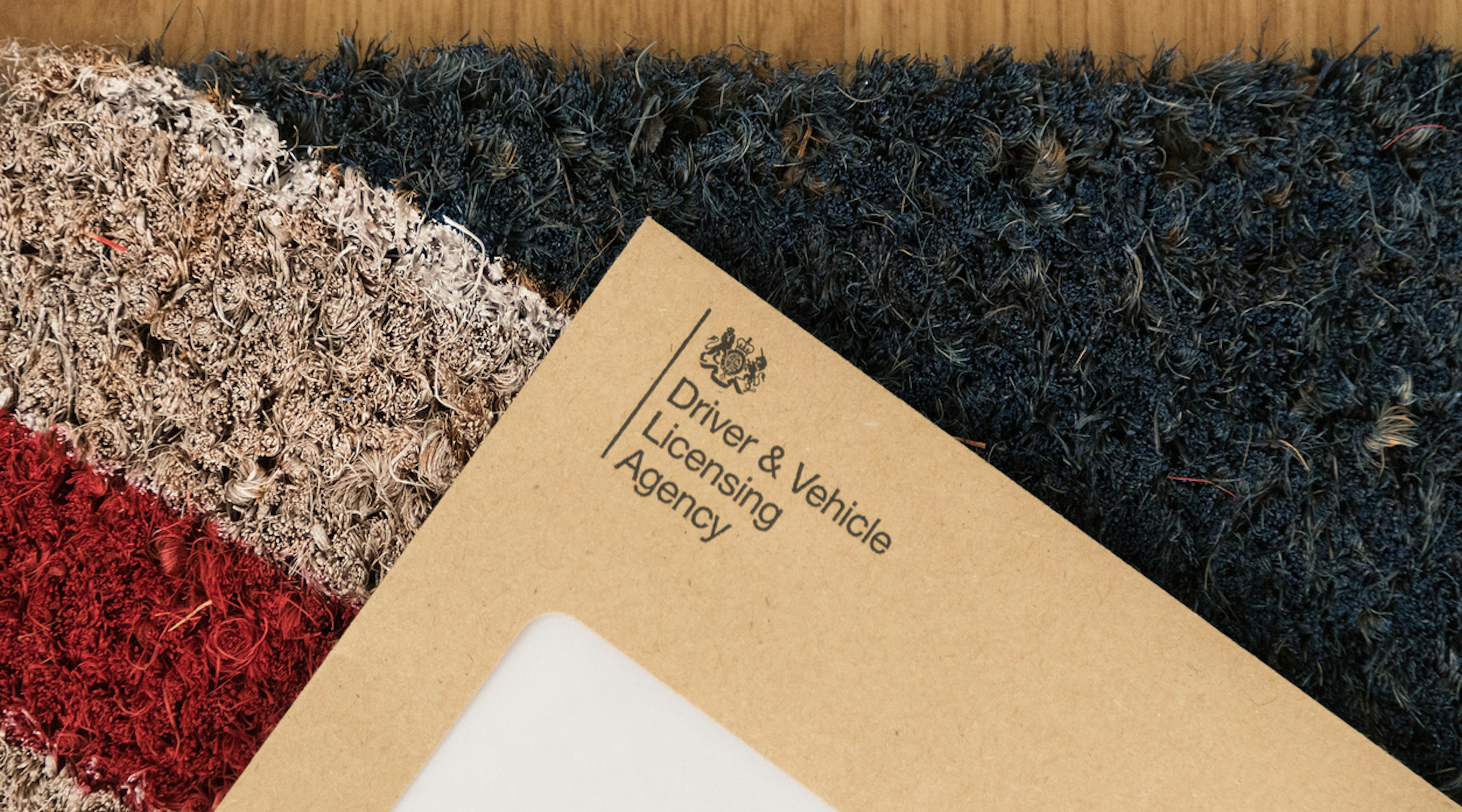Medical cannabis, the DVLA and prescribed medicines
10 min read
Sarah Sinclair
Despite medical cannabis being legal in the UK for almost six years, there is still confusion— and mixed messages—around the rights and responsibilities of patients when it comes to driving with their prescription.
In this article, we take a look at the DVLA guidance around prescription medications, including medical cannabis, and examine your rights on the road.
Contents
Prescription medication and driving
What is the role of the DVLA?
The Driver and Vehicle Licensing Agency (DVLA) is an agency of the Department for Transport (DfT), which plays a crucial role in ensuring the safety and regulation of drivers and vehicles in the UK.
The main responsibilities of the DVLA include:
- recording driver endorsements, disqualifications, and medical conditions
- issuing photocard driving licences
- issuing vehicle registration certificates to vehicle keepers
- taking enforcement action against vehicle tax evaders
- registering and issuing tachograph cards
- selling DVLA personalised registrations
- helping the police and intelligence authorities deal with crime
- providing anonymised data to those who have the right to use the service
What medication do you need to declare to DVLA?
In the UK, if you are taking certain medications that could affect your ability to drive safely, you may need to declare them to the DVLA. This requirement usually applies if the medication impacts your ability to drive safely, or if you have a medical condition that requires notification and the medication is related to that condition.
This includes illegal drugs, but also medications that may be prescribed for conditions such as epilepsy, diabetes, heart conditions, neurological and psychiatric disorders.
Some examples include: Amphetamines, clonazepam, diazepam, flunitrazepam, lorazepam, methadone, morphine, opiates and opioid-based drugs, anti-psychotics.
Drivers are advised to consult their doctor or pharmacist if they are unsure whether a medication might affect their driving.
What medical conditions must be reported to the DVLA?
If you hold a UK driving licence, the law states that you must tell the DVLA if you develop a ‘notifiable’ medical condition or disability, or a condition or disability has got worse since you got your licence. Notifiable conditions are classed as anything that could influence your ability to drive safely.
They can include:
- diabetes or taking insulin
- syncope (fainting)
- heart conditions (including atrial fibrillation and pacemakers)
- sleep apnoea
- epilepsy
- strokes
- glaucoma
Failing to declare a notifiable medical condition can lead to fines, penalties, or even prosecution if you are involved in an accident and found to be driving against medical advice. The DVLA has an online service to help you check if your condition needs to be reported and you can search for your condition in this A to Z list.
Driving while on medication
The DVLA guidelines require patients to be “free from any medication effects that would impair driving” as a condition for continuing to drive or resuming driving following medication. The elements required for safe driving include: attention and concentration, good reaction time, and coordination.
Drivers must not drive if they feel that their medication impairs their ability to do so safely. This includes any medication that causes drowsiness, dizziness, blurred vision, or delayed reaction times.
It is ultimately down to the individual driver to judge whether their ability to drive safely is impaired after administering medication, but healthcare professionals can provide guidance based on the specific medication and the individual's health condition.
Medical cannabis driving laws
In the UK, the law is clear that it is illegal to drive while impaired by any drug, including cannabis, whether it is prescribed for medical use or not.
However, driving legislation was not amended in any way following the legalisation of medical cannabis back in 2018.
Unfortunately, current drug driving tests—combined with a lack of awareness around the legality of medical cannabis—has resulted in reports of patients being arrested and charged despite not being impaired at the time of driving.
Can I drive with a cannabis prescription in the UK?
Yes, you can possess and take your medicine and continue to drive a motor vehicle, as long as the following requirements are met:
- you are not impaired
- The medication has been prescribed by a specialist consultant and you can provide evidence of this
- you are following the instructions provided by your consultant, as well as the manufacturer or distributor of the medicine.
The law expects drivers to be aware of how their medication affects them. If you feel drowsy, dizzy, or otherwise impaired after taking medical cannabis, you should not drive.
The Cannabis Industry Council published specific guidance for patients on driving with a medical cannabis prescription, and this is something we’ve previously covered to help improve awareness.
Do I need to tell the DVLA about medical cannabis?
There is no clear guidance from the DVLA specifically on medical cannabis. And, nowhere does it state that patients are required to inform them of their prescription, unless it's related to a notifiable condition which may impact your ability to drive safely.
However, a report published by the Department for Transport in 2022 found that some doctors have advised patients to notify the DVLA of their prescription to “avoid risking losing their insurance coverage in the case of a collision”.
Generally, each person’s circumstances are different, and a decision should be made by the patient after speaking with their prescribing doctor. As with other medicines, medical cannabis prescribers should give their patients advice on driving, including informing them that patients should not drive if they feel impaired and should consider the interaction of medical cannabis with other medications.
How does cannabis affect driving?
THC, the main psychoactive compound found in cannabis can cause effects which may impact driving ability. These include, drowsiness, impaired judgement, slower reaction time, poorer control of motor skills, lack of concentration, confusion and blurred vision.
While THC levels may impact on the nature and level of impairment, CBD is not generally regarded as a concern for road safety, with research showing that even high doses do not affect driving impairment.
Cannabis and driving safety
The Department for Transport report suggests a “low-to-moderate increase in crash risk” when driving on cannabis, compared to driving sober, however it is important to take into account limitations, such as how consistently studies measure the frequency and quantity of cannabis used and how cannabis use is isolated from use of alcohol.
It also highlights that the risks of cannabis-impaired driving are thought to be minor compared to alcohol, although this could be due to the fact it is less common. Medical cannabis users likely “pose less of a risk” than those consuming cannabis recreationally.
Cannabis limit for driving UK
The law sets specific blood concentration limits for certain drugs, including THC. In the UK, the legal limit for THC while driving is 2 micrograms per litre (μg/L) of blood. This is generally considered a low threshold, reflecting the law’s ‘zero-tolerance’ approach. If you exceed this limit, you can be charged with drug driving, even if you are taking the drug legally with a prescription.
Police routinely use roadside drug tests (oral swabs) to check for presence of drugs such as THC. If you test positive, you may be arrested and taken for a blood test to determine the precise level of drugs in your system.
How long does cannabis stay in the system?
How long after use THC can be detected in the blood depends on a number of factors, including the frequency of use, the potency of the cannabis, your metabolism, and the type of drug test being used.
For patients medicating with cannabis daily, or several times a day, THC may be detected in a saliva test for up to a week after administration, for up to 60 days in a urine test, and for several weeks in a blood test.
Cannabis driving impairment
The evidence generally suggests that impairment from medical cannabis containing THC usually lasts for four hours or less. However, while current drug tests can detect whether THC is present, research suggests that they are ineffective at measuring impairment, with one randomised control trial finding ‘no relationship’ between blood THC concentrations and driving performance.
Cannabis and the ‘medical defence’
If you are stopped by the police and test positive for THC but are taking cannabis on a prescription, you may have a "medical defence" in court.
This defence is valid if the drug was prescribed by a healthcare professional, and you have followed the prescribed dosage instructions.
If the blood test shows THC levels above the legal limit and you cannot prove a valid medical defence, you could face a driving ban, a fine, or imprisonment.
What to do if you get stopped by police while driving?
You always should ensure your medication is in its original packaging and that you have a copy of your prescription ready in case you are stopped by police. If this does happen to you, try to stay calm and remember your rights.
Releaf provides every patient with a medical cannabis card to ensure they can easily access all of their prescription information and clinic records in one place. This should offer some protection and reassurance should they find themselves in a situation where they need to prove their right to carry and administer medical cannabis.
What if you have concerns about driving or road safety?
If you’re still unsure, or you have any concerns about how your prescription or medical condition might impact your ability to drive, always seek advice from your prescribing doctor. You can also check out Releaf’s FAQs and contact the patient support team here.
Share article
Did you like this article?
It is important to seek medical advice before starting any new treatments. The patient advisors at Releaf are available to provide expert advice and support. Alternatively, click here to book a consultation with one of our specialist doctors.
Elevate your wellness with medical cannabis
Get comprehensive care, convenience, and confidence with an all-in-one treatment plan.
Am I eligible?Authors
Sarah, a distinguished journalist with over a decade in publishing and communications, now excels in cannabis health and policy journalism in the UK, advocating for informed health decisions through her award-winning work.
Editorial Policy
All of our articles are written by medical cannabis experts, guided by strict sourcing guidelines, and reference peer-reviewed studies and credible academic research. Our expert clinical team and compliance specialists provide valuable insights to ensure accuracy when required. Learn more in our editorial policy.
Need more help?










